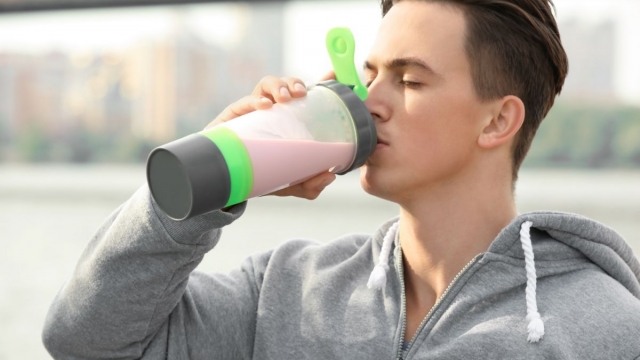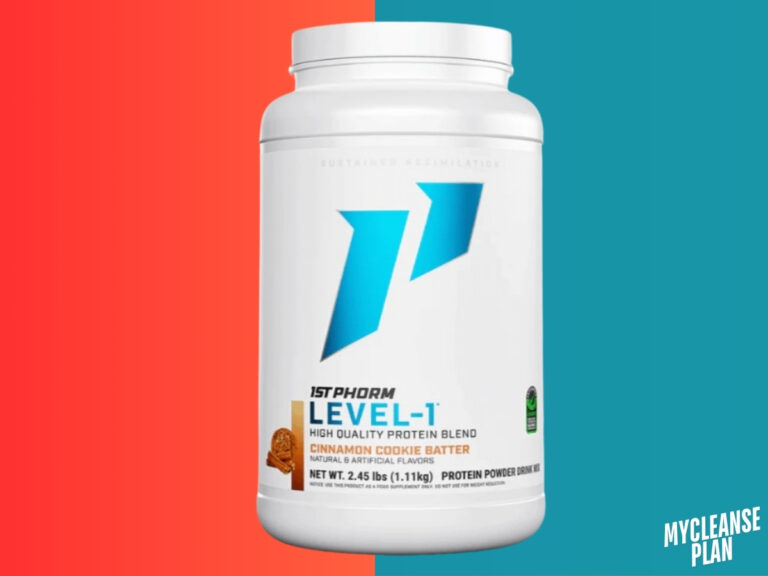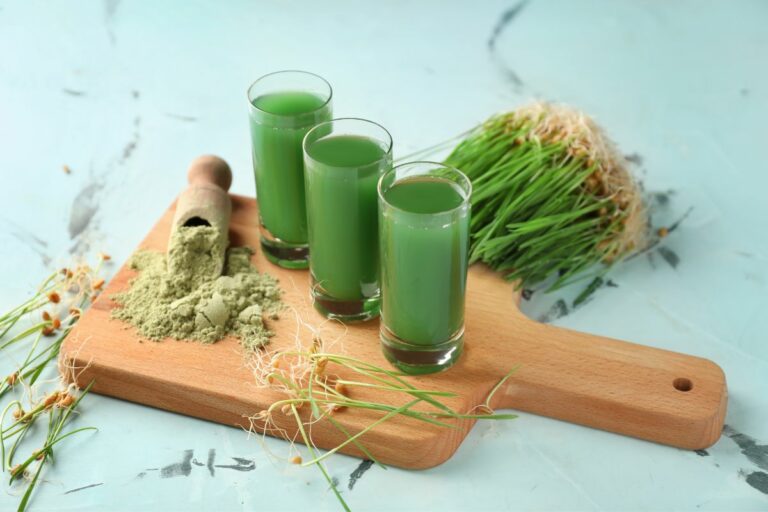Protein Shakes Vs Whole Food Sources Of Protein: Which Is Better?
Both protein shakes and whole food sources of protein have unique benefits and can be effectively incorporated into a balanced diet depending on individual health and fitness goals.
Key Takeaway
- Convenience vs. Nutrient Density: Protein shakes offer convenience and rapid absorption, while whole foods provide a broader range of nutrients and promote satiety.
- Post-Workout Recovery: Protein shakes are ideal for quick post-workout recovery due to their fast absorption and high-quality protein content.
- Overall Health: Whole food sources of protein contribute to overall health with additional nutrients like vitamins, minerals, and fiber.
- Personal Preference: The choice between protein shakes and whole food protein sources should be guided by individual preferences, dietary needs, and lifestyle.
Protein shakes are a staple in the diets of many fitness enthusiasts across the whole. Their convenience, nutrient density, and many flavors are the main things that lead people to incorporate them into their lives.
But what if you’re somebody who is new to fitness, and are looking to learn more about protein shakes and why people use them? Are they a better source of protein than whole food?
This is a common question, but an important one to explore. In fitness, diet is often as important as your exercise regime.
That’s why in this article, we’re going to provide you with a total guide that will explain everything you’ll need to know about protein shakes vs. whole foods as sources of protein.
We’ll answer some of the common questions around this issue, and give you some specific advice that you can use in your lifestyle.
The Protein Content Of Protein Shakes
Protein shakes are usually a concentrated source of protein that will come in powdered form – though there are other forms.
Known to be especially easy to prepare and drink, they have become a popular choice among fitness enthusiasts, athletes, and people looking for additional protein in their diet.
Protein shakes are made by mixing the premade powder with milk, water, or other alternatives.
Protein shakes are going to offer an individual a high protein content, usually ranging from 20 to 30 grams per serving (though this can vary depending on the product you buy).
They also often include essential amino acids, minerals, and vitamins, providing a complete nutritional profile. The protein in these shakes is most often derived from various sources, such as whey protein, soy, pea, or rice.
Why Are Protein Shakes So Popular?
Protein shakes are used by people for many different reasons. One of the most common of these is to support and cultivate muscle growth and recovery after an intense workout.
Protein is an integral component in the repair of damaged muscle fiber, as well as promoting muscle protein synthesis, which in turn leads to enhanced hypertrophy and strength.
By drinking protein shakes, a person can quickly get the protein stores they need to help them recover after an intense workout session.
Another reason why people drink protein shakes is if they are looking to lose weight or maintain healthy body composition.
Protein has a higher thermic effect than carbohydrates or fats, meaning it needs more energy to absorb and digest.
This can be very helpful for somebody trying to lose weight, especially when mixed with other positive lifestyle choices.
Additionally, protein can help to increase satiety, reducing a person’s appetite and cravings for food like carbohydrates.
Why Can It Be Hard To Get A Good Level Of Protein From Whole Food?
At this point in our article, you might be wondering why people choose to supplement their protein intake when protein is available from simply eating whole food.
You should know that whole food sources are generally considered the most optimum source of nutrients for most people.
However, while this is true, for some people it can be difficult to get an adequate level of protein from whole foods alone.
Meeting protein requirements through whole food sources requires a person to carefully plan their meals, especially if the person in question has specific dietary restrictions or preferences.
There are many whole foods that you can use as good sources of protein, including meat, poultry, fish, eggs, legumes, nuts, seeds, and dairy products.
While these foods offer various other nutrients and health benefits as well, they may not always be accessible or convenient to consume in the required quantities; especially when a person’s time is limited by a busy work schedule.

What Is The Best Choice For Me? (Protein Shakes VS Whole Food Sources)
The choice between protein shakes and whole food sources of protein will depend on your individual needs, daily circumstances, and preferences.
In an ideal world, you might want to try to limit your reliance on protein shakes, but they can work extremely well as an additional protein source on top of a reliable whole-food diet.
In the following sections, we’re going to outline some of the main things to keep in mind when trying to decide whether or not to add protein shakes to your diet.
1. Nutritional Profile
Whole food sources of protein are often tied with other nutritional benefits – including vitamins, minerals, and dietary fiber.
If you want to keep a well-balanced nutritional profile, then you should consider incorporating a variety of whole-food protein sources into your diet.
This is true whether or not you are going to use protein shakes as a supplement.
2. Dietary Restrictions
If you have any specific dietary restrictions or allergies, you might need to consider which protein sources are suitable for you. For example, if you have a nut allergy, then this will cut out an entire healthy protein source.
Protein shakes can be a great way for people on restrictionist diets to supplement their protein intake, and come in a variety of options including plant-based alternatives which can help you if you are a vegan or vegetarian.
3. Convenience
The convenience of protein shakes can not be understated. If you’re a person looking to work out and gain muscle mass, but don’t have the time to get enough protein from whole food sources, then protein shakes will be a great choice for you.
They can be easily prepared and drunk when you’re out on the go, making them a practical choice for anyone who needs a quick fix of protein.
4. Cost
Cost can be a factor to keep in mind and something that you should consider when choosing between these two protein sources.
Protein shakes, especially those made with high-quality ingredients, can cost you in the long run. If you’re on a budget, then you might want to opt for whole foods instead as these will be much more affordable.
Explore Also:
Creativehouseblog
Dietsheriff
Gigasecurehome
Final Thoughts
Before we wrap up, we just wanted to highlight how important a balanced diet is. While protein shakes are a great way to supplement protein or to help you recover after a workout, you should always make sure to maintain a good diet whenever possible.
We hope that this article has explained everything you wanted to know and that you’re now more confident about this topic. Good luck with your workouts!
Frequently Asked Questions
Can Protein Shakes Replace Whole Foods Entirely?
No, you need to make sure you maintain a balanced diet alongside protein shakes. They are a great source of protein, amino acids, and other nutrients – but will not contain the complete nutritional profile you’ll need to be healthy.
What Is A Safe Amount Of Protein To Consume Daily?
This depends on your workout goals and personal factors like body weight, age, sex, and how much you’re exercising. The general recommended dietary allowance for protein is 0.8 grams per kilogram of body weight.
Other Articles To Read
Protein Shakes For Women: Addressing Common Misconceptions – Protein shakes are a great way to build muscle – but are the concerns women have about them true? We took a closer look at all you need to know.
Shakes vs Smoothies – Is One Healthier Than The Other – We are often encouraged by health websites to make shakes and smoothies but which is healthier? That’s what we get to the bottom of in this post.







